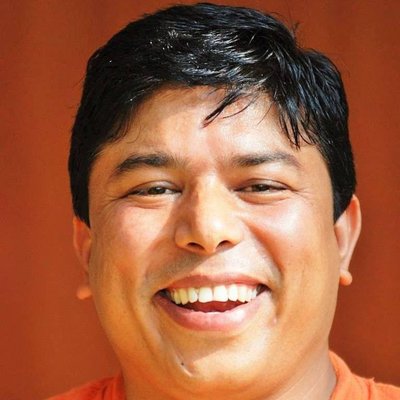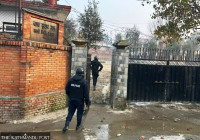Valley
Balendra Shah raps court over order on Hindi film screening
Experts say Kathmandu mayor’s posture could be held in contempt of court and even cost him his public position.
Ghanashyam Khadka
On Thursday, Kathmandu Mayor Balendra Shah said he will not abide by the ruling of the Patan High Court that ordered the authorities not to bar the screening of Hindi movies in Kathmandu.
The court had issued an interlocutory order asking the authorities not to intervene in the screening of any movie cleared by the censor board in Nepal.
Soon after that, Shah took to social media to lambast the court order.
Shah not only vented his ire against the court’s decision but also went on to say that the court and the government had become ‘slaves’ to the southern neighbour India.
“Yasko lagi jun sukai sajaya bhogna tayar chhu tara film chaldaina ra chalna diyine chhaina [I am ready to face any consequences, but the film will not be screened and it will not be permitted for screening],” the mayor wrote on Facebook.
Legal experts say Shah’s remarks that he will not abide by the court’s decision is unconstitutional and could push him into legal trouble.
They said the comment is against Article 126(2), Article 128(4), Article 139 (2) and Article 151(1) and is an act of contempt of the court.
Article 126(2) states that all shall abide by the orders or decisions made by courts in the course of the hearing of a lawsuit.
Likewise, Article 126(2) states that the Supreme Court may initiate proceedings of contempt and impose punishment in case someone obstructs the dispensation of justice or disregards any order or judgement handed down by it or any of its subordinate courts.
As per the Article, the apex court can initiate a case against Shah as his statement amounts to contempt of court.
Similarly, Article 139(2) of the constitution states that the High Court may initiate proceedings on and impose punishment for contempt, as provided for in the federal law in case anyone obstructs the dispensation of justice by, or disregard any order or judgement handed down by it or any of its subordinate courts or judicial institutions.
Hearing a petition filed by the Nepal Motion Picture Association, a single bench of judge Dhir Bahadur Chand ordered that the screening of films that have been cleared by the censor board not be stopped.
Even before the court issued a written order, Shah took to social media, dubbing the court and the government as ‘slaves’ of India. He didn’t stop there and warned he will not allow the screening of the film.
Senior advocate Sambhu Thapa says Shah’s remarks amount to contempt of court.
“The mayor is not above the law,” he said. “The constitution clearly says that the court has the right to hear cases against the decision of a metropolis and he has no freedom to disobey the court order.”
Thapa argued that it is in contravention of the constitution to say that he will not obey the decision of the court established as per the constitution. Moreover, Shah was elected to the post as per the provisions of the same charter.
“The court can itself initiate the process of filing a case,” said Thapa. “At a minimum, the defendant may be punished for contempt while at the most the person may even lose the post, so it depends on how the court interprets it.”
However, the court thus far had not stripped anyone of their public position in a contempt of court case in Nepal, according to Thapa.
“But you can’t also say that it will never happen,” said Thapa, who is also the former president of the Nepal Bar Association.
“The extent of punishment will be determined by the court’s interpretation and conclusion. But his expression amounts to contempt, prima facie, as no one can say that they will disobey the court.”
Shah’s Facebook status had received over 211,000 likes and over 42,000 comments within seven hours since it was posted.
Advocates say the remark should be taken seriously as this could erode public trust in the judiciary when a people’s representative with a huge following on social media makes random comments against the judiciary.
When ‘new leaders’ say they will not follow the rule of law, it can lead to chaos, Mohan Lal Acharya, a constitutional lawyer, said.
He argues that people’s representatives cannot say they will not respect the orders and judgments of the courts, which even dictatorial military regimes and autocratic monarchs are forced to obey.
“Even a monarch cannot say he will not accept the court’s decision. The elected mayor does not have the privilege to disobey the court’s order,” said Acharya.
“You always have the option of appealing if you don’t like a court’s order. But you cannot disobey its order.”
Pakistan’s top court had disqualified the country’s Prime Minister Yousuf Raza Gilani from office after he was found guilty of contempt for refusing to comply with a Supreme Court order.
Acharya argues the court can take similar action against Shah, taking the Pakistan case as a precedent.




 16.12°C Kathmandu
16.12°C Kathmandu











